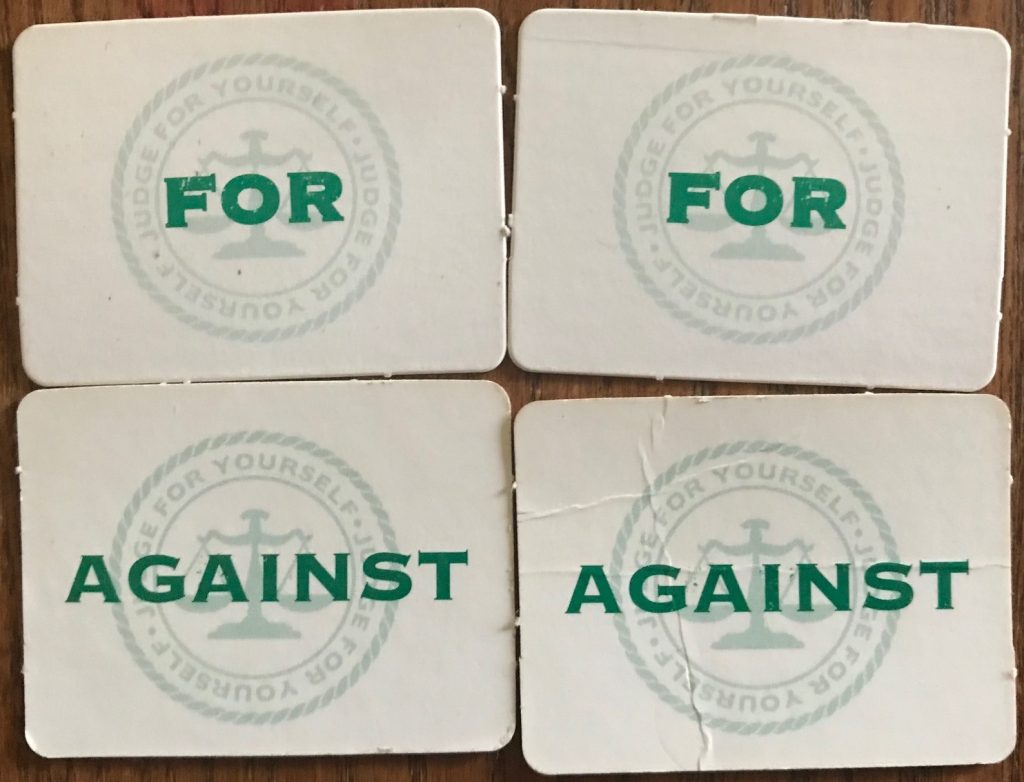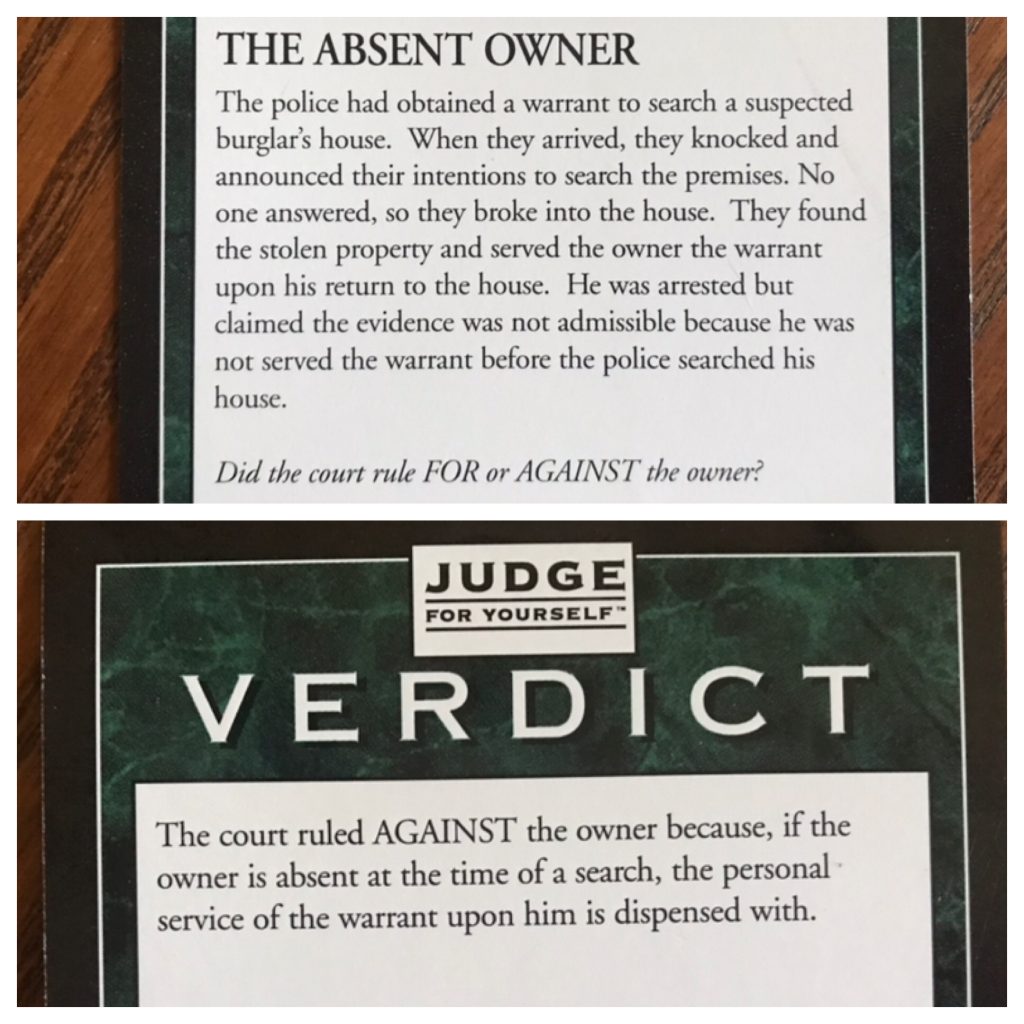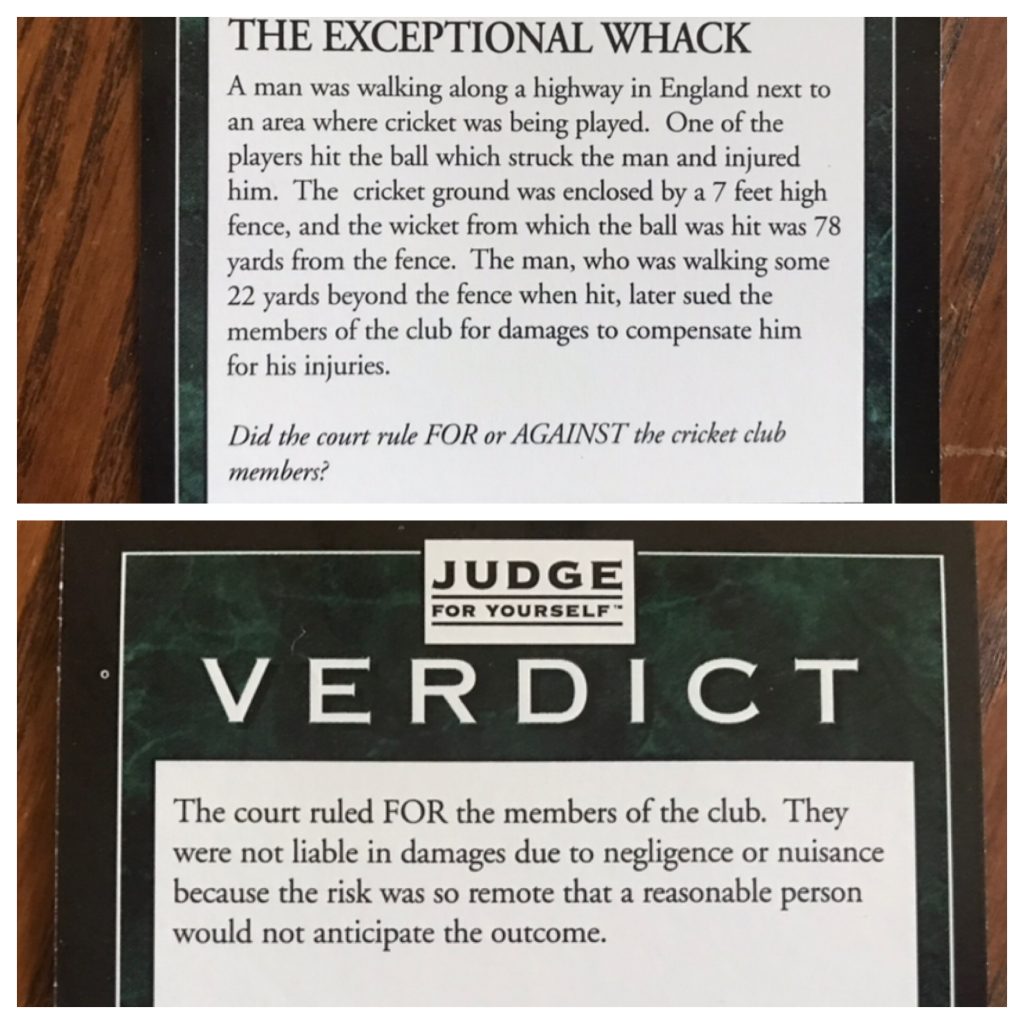Review: Judge for Yourself
Publisher: Pressman
Year: 1998
Tagline: The Game of Real Life Courtroom Dramas

how we met
I found Judge for Yourself only recently at thrift. There are a number of law-themed games, and some of them get really high ratings and love. This one gets mediocre love, but I was looking forward to play. I have seen every episode of Law and Order a bazillion times, so I basically have an honorary Juris Doctor degree. Right?
how it plays
Note: I think there may be other instructions out there that I was not able to find, so grain of salt and all that.
Judge for Yourself can be played in teams or as individuals. Each team / player is represented by a pawn on the board. The object of each team / player is to be the first one to the finish space, then you win!

In a game with two teams, the first team (we will call them Team A) would roll the die to determine how much pawn movement is at stake. Then Team A would draw a CASE CARD and read it aloud to Team B. Be sure to cover the back of the card so that Team B can’t see the VERDICT!
Then Team A reads the VERDICT side of the card, while Team B deliberates on what they think the answer was. Team A is allowed to introduce arguments to try and sway Team B. But ultimately Team B submits a FOR or AGAINST verdict.

If Team B guesses correctly then their pawn moves that number of spaces. If they guess incorrectly then Team A moves that number of spaces.
The first team to the finish space wins!
how it went
My copy is missing instructions, and I actually think that is for the best. Since the VERDICT is on the other side of each CASE CARD, we just all played together and whichever team was correct got to move forward and if any teams were incorrect, then they did not.
There may be more nuances to ways to play this game (I believe there is something about teams / players having to sync up together if they are on the same color on the board), but if so I couldn’t find them. I think even the rules we used the night of play are no longer findable for me.
Anyway, the game was okay. Some of the conversation was interesting as to why one thing or why the other. But many of the scenarios were actually in a foreign jurisdiction, which gives you very little context to fall back on when basing your judgment. And that’s fine. But it does tend to feel like much of the case law chosen for the game is for shock value and often your best bet is to defy logic.
One thing Judge for Yourself has going for it is the sheer number of cards in the deck. I’m not sure how many, but my copy has been through thrift at least three times based on the number of price tags on it, and one half of the deck still remains sealed! Since showing you just a few of the cases will not ruin any material percentage of the game, enjoy some examples that came up in our play:




Many of the comments from players that enjoy this game on BGG even recommend you just take the cards and read them during a walk or a road trip. The cards are interesting for passing the time and conversation, and considering legal angles, but the gameplay does not bring a lot to the table outside of the cards.
Another common complaint of Judge for Yourself on BGG is that critical facts are left out of these cases. I believe that, not only because doing these cases justice would not fit onto the card space but also because the game is trying to make the cases difficult to predict. You never know when some jerk who watched a lot of Law and Order will come along and be like, “I got this.” Those people need to be humbled.
We played as teams, Bill and me vs John and Keri. We probably played incorrectly, but we played consistently. And Bill and I won Judge for Yourself!
play or pass
Pass. The cases might interest you or prompt discussion outside of gameplay, but Judge for Yourself is ungamely. And be wary that you are not getting all of the facts by reading a tiny card about a case. If this type of case law interests you, I feel that there must be more thorough and interesting options out there.